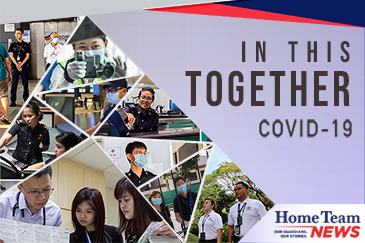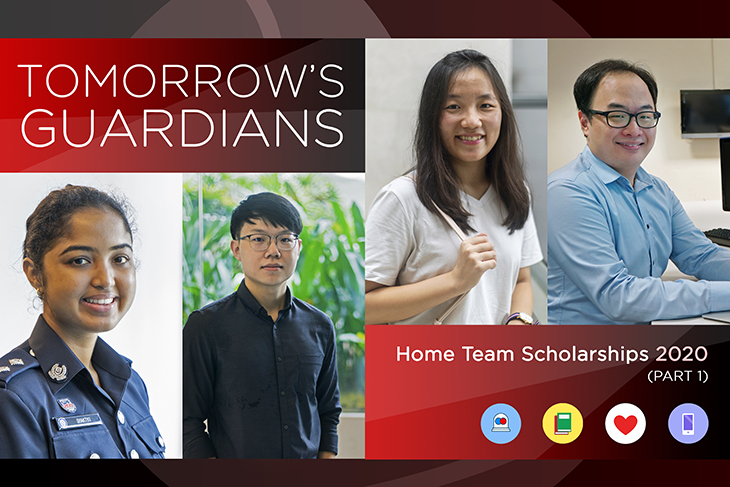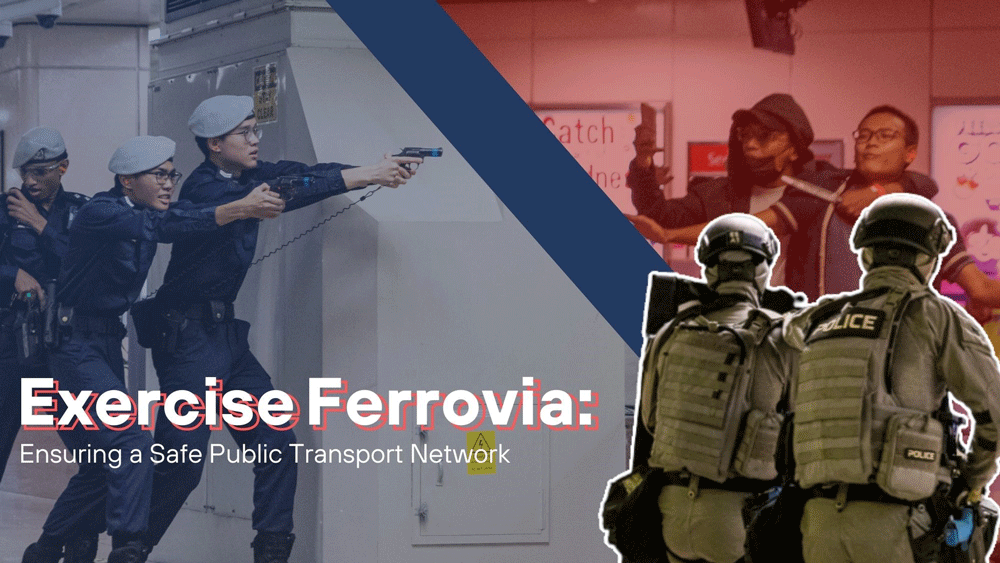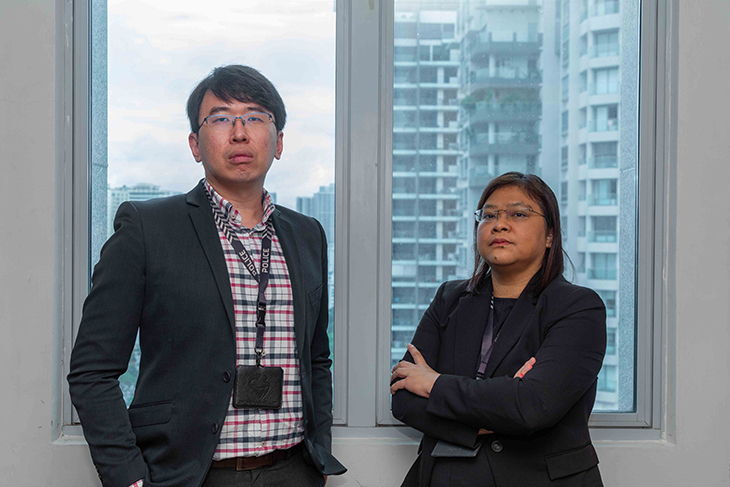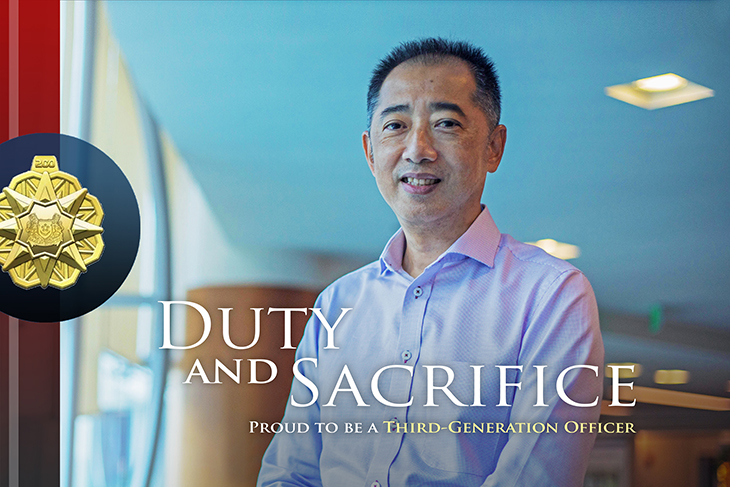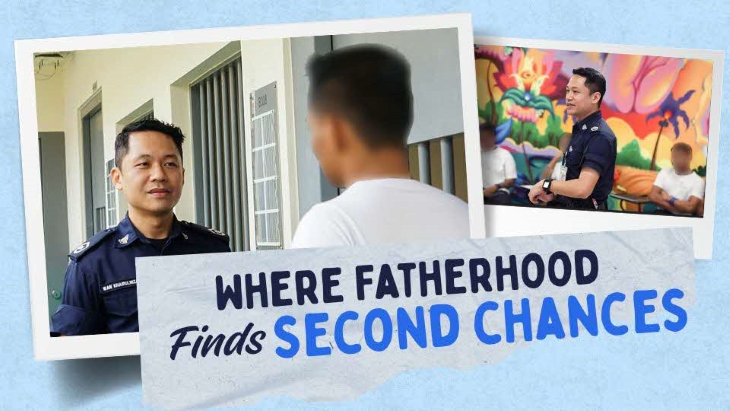
PHOTOS & GRAPHIC: Melody Ho, Amber Qua
When “Mark” and his wife were incarcerated at the same time, their young daughters were placed in the care of Child Protective Service (CPS) under the Ministry of Social and Family Development.
It was Chief Warder (CW) Wan Khairulnizam, a Correctional Unit Officer (CUO) with the
Singapore Prison Service (SPS), who worked with CPS to set up a virtual call for Mark to reconnect with his daughters. In the days leading up to the call, CW Wan went above and beyond, sitting down with Mark to discuss how he could continue being an attentive father, even while incarcerated.
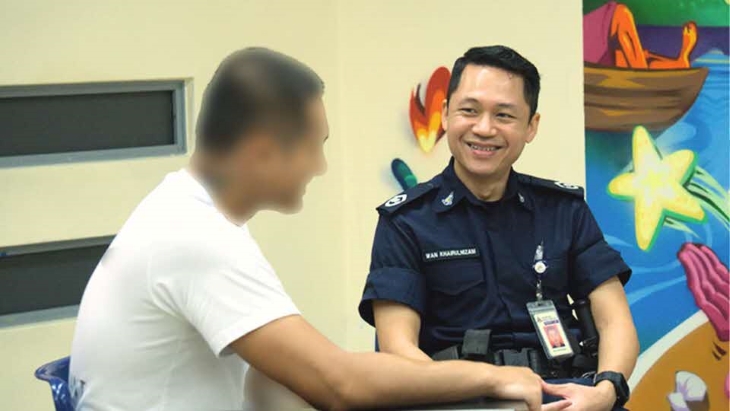
CUOs such as CW Wan play a pivotal role in keeping inmates in secure custody and guiding them in their rehabilitation journey. PHOTO: Amber Qua
“I’ve always had a desire to help people in any way I can,” said CW Wan. When he chanced upon a role in SPS at a recruitment fair in 2009, it was the perfect opportunity for him to help inmates through their rehabilitation, towards a life without re-offending and where they can contribute back to society.
Rebuilding Inmates’ Family Ties
Strong familial ties play a critical role in inmates’ rehabilitation. However, inmates face emotional and practical obstacles when trying to reconnect with their children. Many struggle with feelings of guilt, shame, anxiety and rejection from their past actions. The prolonged period of separation while in prison heightens this challenge.
Through structured
family programmes organised in collaboration with partner agencies, SPS helps inmates to strengthen relationships with their family members, facilitating their reintegration into society upon release and reducing their risk of reoffending.
In addition to managing the inmates under his charge, CW Wan encourages suitable inmates to attend workshops and family-focused programmes curated to their needs.

CW Wan interacts with the inmates of Institution S1B daily to ensure their rehabilitation is progressing smoothly. PHOTOS: Melody Ho
When checking inmates’ interest in attending such workshops, CW Wan highlights to them that such sessions are a safe environment for inmates to open up, share experiences and learn from other inmates on how to be a better father, or just for self-improvement.
“When inmates get this assurance, they are willing to attend these classes or workshops,” CW Wan shared. “After they attend, I have a quick chat with them to glean what they have learned. All of them mentioned that they found the sharing from the volunteers [who conduct the workshops] to be valuable.”
As a Personal Supervisor to a group of inmates, CW Wan also sits down with them to review their progress towards their rehabilitation goals, which are mapped out in a document titled My Action Plan (MAP). In these discussions, he prioritises topics on family and employment, as he finds these domains especially pressing for reintegration.
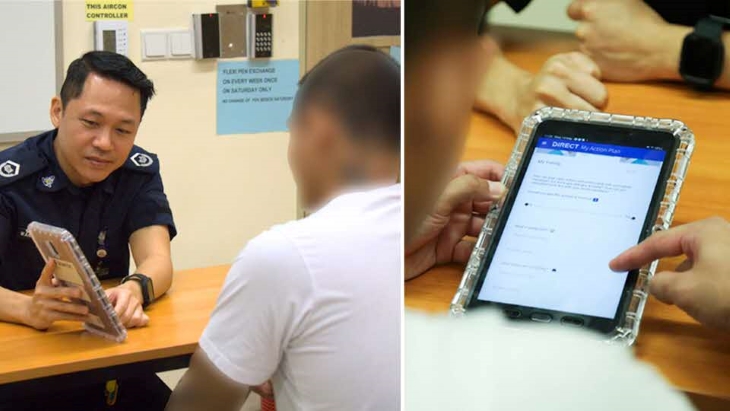
The MAP document helps inmates to track their rehabilitation progress. PHOTOS: Melody Ho, Amber Qua
CW Wan recounted how one inmate stood up during an engagement session with a group of inmates, to express his appreciation to his fellow inmates and loved ones. Unexpectedly, the inmate specially mentioned CW Wan as a positive role model to him.
“In my interactions with this inmate, I had shared with him two pieces of advice on being a father,” CW Wan said. “First, work hard to improve his relationship with his family, whether through video calls or writing letters. Secondly, to adopt a constant growth mindset. Parenting is both rewarding and challenging, so embrace the experience.”
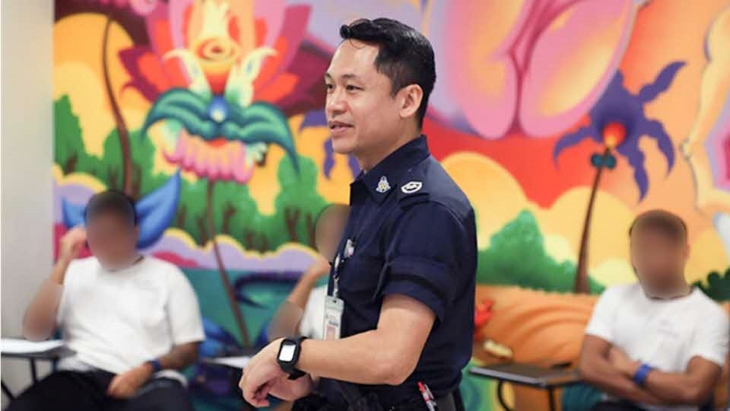
CW Wan engaging with the inmates under his supervision in a peer-led group setting, creating a space for open communication and dialogue. PHOTO: Amber Qua
Lessons from a Captain of Lives, Father of Three
A devoted father of three, CW Wan’s wife and children are his source of strength and support. When he told them of his interest to join SPS in 2009, his family supported his decision fully.
“The CNA documentary ‘Inside Maximum Security’ helped me explain my job in SPS to them. We sat down to watch it together and my children asked me questions like ‘What time do they [the inmates] eat, what time do they go to the yard?” he added with a smile.
One lesson CW Wan has learned from his rehabilitation work with inmates is being present in his children’s lives.
“For incarcerated fathers, they cannot be present for their children due to their sentence. So, they may miss many major milestones in their children’s lives. This value of just being there for your children – that holds the most meaning for me as a father.”
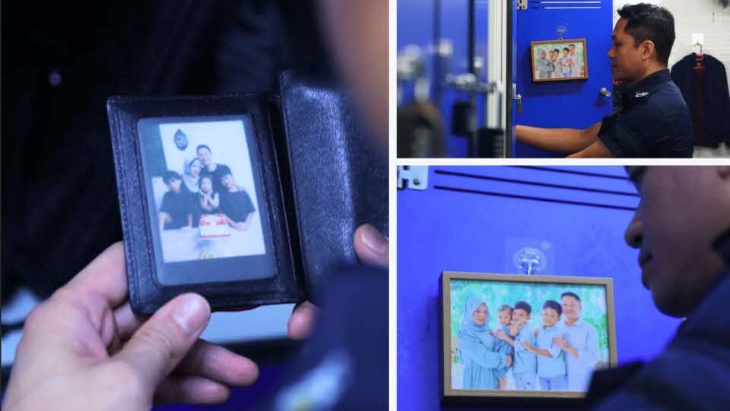
When CW Wan has hard days, his wife and three children are always there to offer words of encouragement. PHOTOS: Melody Ho, Amber Qua
When asked about potential misconceptions and stereotypes surrounding inmates as fathers, CW Wan admitted that he may have held similar notions in the past.
“Many people believe that incarcerated fathers are disconnected and incapable of nurturing close relationships. In reality, after talking to these inmates, they genuinely feel remorseful and want to rebuild their bonds with their children,” he said.
“We will continue conducting various family programmes in the hope that, with the right intervention, these inmates can hopefully emerge someday as caring, responsible fathers committed to positive change in their life.”







